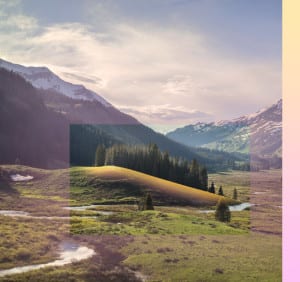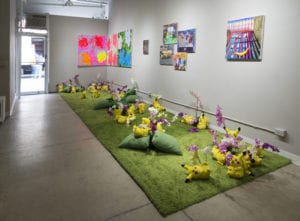In our series The Zealous Set, we talk to the artists catching our attention about what they’re creating, watching, reading, and what they’re currently inspired by.
Jiaoyang Li is a poet and multimedia artist based in New York City. Having graduated from Goldsmiths College, University of London and New York University with a poetry- focused BA and MFA in Creative Writing, she also researched Devising Theatre and Choreography at London International School of Performance Art in Berlin, and Inter- active media and design at Tisch ITP Department.
Apart from page-based writing, she also extends her literary practice into textile sculpture, interactive/audiovisual/ VR in- stallations, site-specific performances, public interventions or collaborative projects and more. Her work raises questions about Anthropocene, internet surveillance, gender fluidity, family memories and diaspora experiences related to silk, fabric, and clothing.
She sees the world as a long drape with countless folds and patches. Most of her work is made of found objects, language, and image, hoping to weave the uncertainty of this dystopian time into a new narrative.
In 2020, Li Jiaoyang was selected into the New York Art Foundation’s Immigration Artist Mentoring Program. Her work has been exhibited at the New York Live Art Center, the Immigration Artist biennial, Performa Biennial, Artyard Center, Milan Modern Art Center, Milan A60 Art Space, Los Angeles Design Festival, womenswork.art gallery, Indie Film Festival, DC Chinese Film festival and more.
Her literary work has been featured by Los Angeles Book Review, Chinese News Magazine, Beijing Contemporary Art Center, and elsewhere. Find more about her at https://www.jiaoyangli-textile.com/
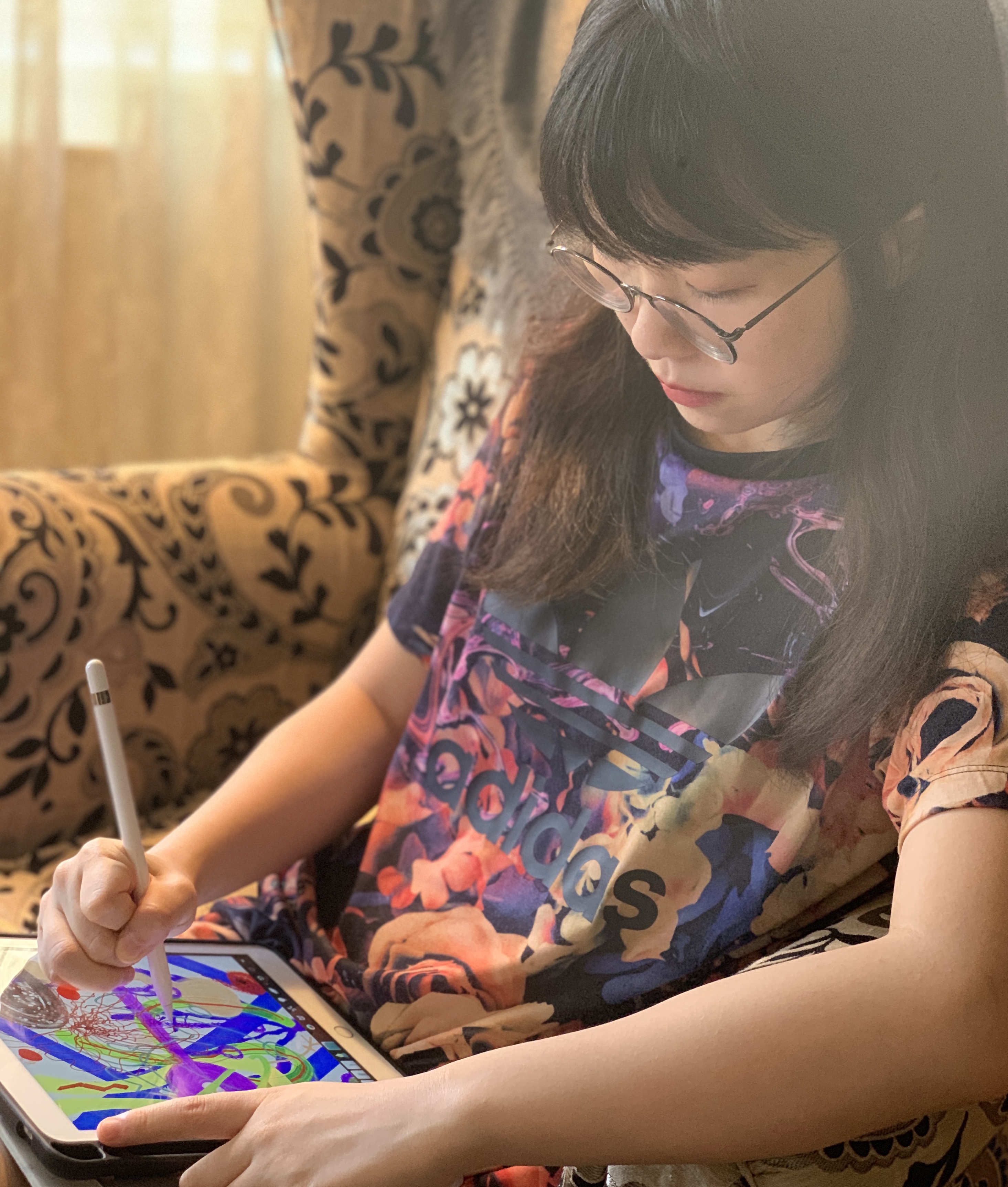
Art Zealous: Tell us a bit about yourself! When did you know you were an artist?
Jiaoyang Li: My name is Jiaoyang Li, meaning “scorching light over a plum tree”. I was born in Yibin, a five-tier city in China that produces the best Baijiu liquor. I fled from there when I was 8 as I was trying my best not to be a drunkard.
I guess “artist” is never a job title that pays you enough to brag about it; instead it’s a diagnostic report. I am artist because I am probably ill—when I enjoy something or am suffering from something, I am still thinking about what work can I make out from it.
AZ: Where are you based out of, and what do you love most about it there?
JL: I move house at least once every year. Although because of covid I haven’t moved anywhere else this year, I did manage to move my furniture around my apartment a lot.
This year, I sleep in Newport, New Jersey, and when the day breaks, I cross the Hudson River and wander in NYC. Although it only takes 15 minutes to travel from Newport to central Manhattan, it still feels like crossing a state. I love joining the mess in NYC, but I also love the peace and fresh air in New Jersey. I love moving from state to state everyday.
AZ: What inspires you?
JL: Most of my work is made of found objects and language. When I am not taking notes of overheard words on subways, I am probably taking pictures and videos of random things on the street. Lost gloves, broken TVs and toys next to the trash can, the old man in Washington Square Park who can summon hundreds of pigeons, and people dressed like clowns and Batman on the subway: they have stored the most crystal and vulnerable memory of this truly messy but magical city.
AZ: Walk us through what a day in the studio looks like with you!
JL: My studio is my bedroom which is a bed surrounded by shelves and tables. I have several large and small tables. One for threads, little ornaments, and hand made jewelries. One for painting kits and embroidery kits. One for computer and other digital things. One for food.
I write poems in bed. When I get out of the bed I move around my tables and doing different things and sometimes they all mix together.
AZ: Do you listen to music or podcasts while you are working? What’s on your playlist?
JL: I only listen to minimalist and ambient music when I am working, lyrics distract me. Sometimes I listen to classic music from WQXR radio station. For a specific musician recently I am listening to Julia Holter’s work. For podcasts I listen to Faber Poetry Podcast host by Jack Underwood. Common Place host by Rachel Zucker. And 跳岛FM.
AZ: What are you currently reading or watching?
JL: I am reading poems by Mark Strand, George Seferis, Clarice Lispector, nonfiction by Sheila Heiti, Olivia Liang, I just watched Laurie Anderson’s Heart of a Dog this week.
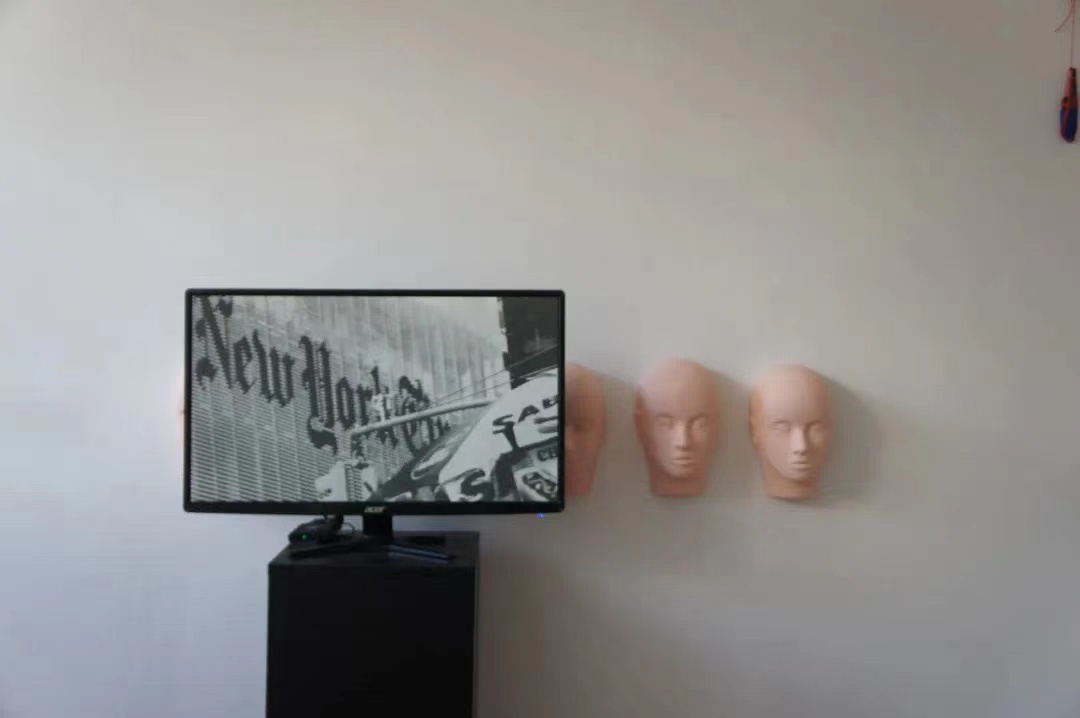
AZ: How are you staying connected with other artists these days?
JL: I don’t like artists gatherings for gossip. I don’t like communication, connections, suface praise. So it’s okay for me to lose track of being connected. I do enjoy collaborating with artists I like and trust though. I made an online audio-visual poetry space with Dyan Jong, a poetry movie with film maker Yiru Chen, a VR performance with poet Jinjin Xu, some long poems with poet Sonja Bjelic and Cole Bjelic, and I started a company with writer Na Zhong.
Currently, I am working on a handmade artist book with printmaking artist Locus Chen, an illustrated poetry series with illustrator Zoe Li… I believe collaboration is the best connection to keep me boosted.
AZ: What’s something on the horizon that you’re excited about? A new series, offering, collaboration…
JL: I am excited about my own company AccentAccent重音社. As a freelancer, for a long time, I work simultaneously for multiple places. For the new year I hope to just work for myself.
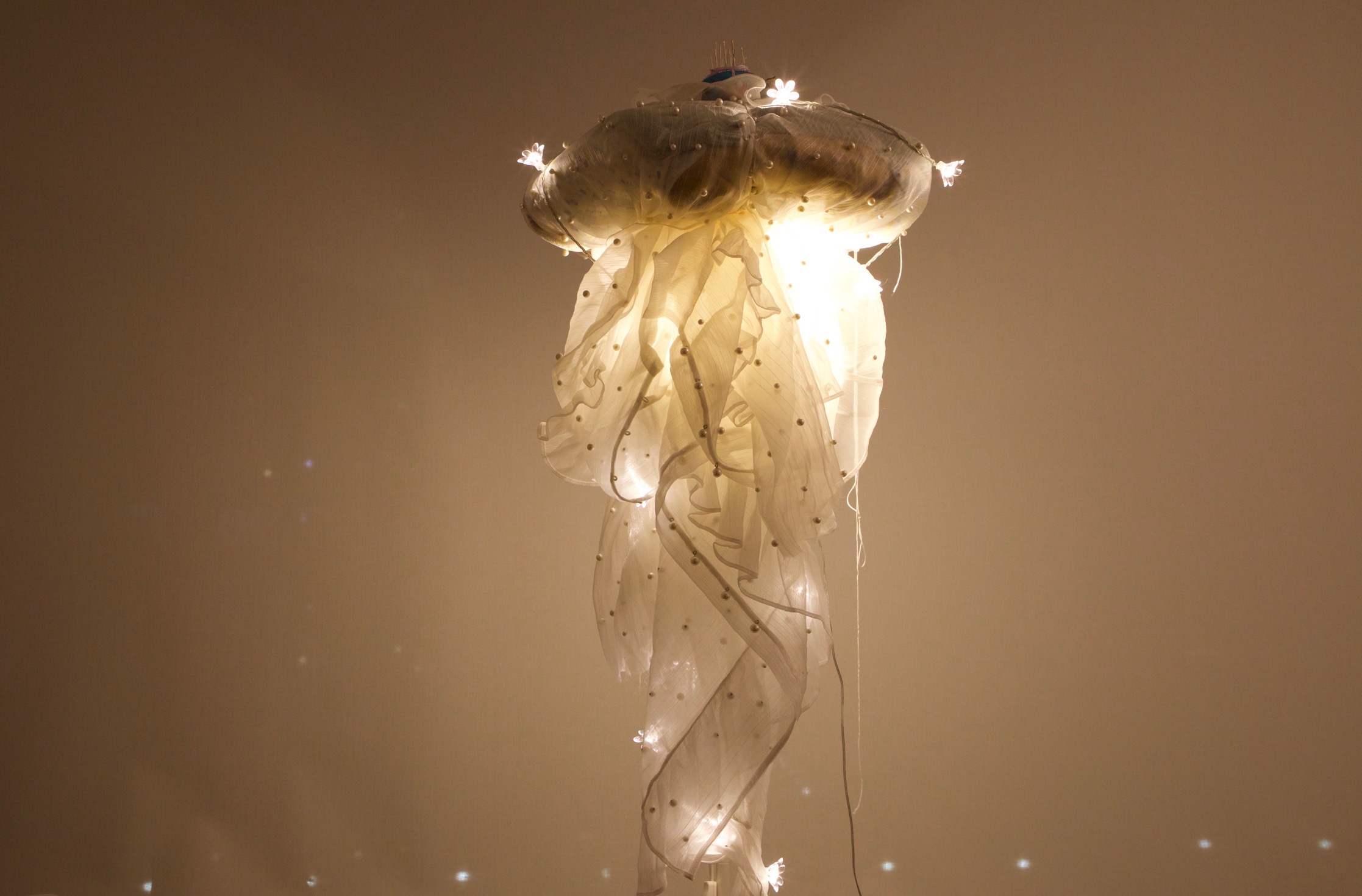
AZ: What’s something from your art career that you’re most proud of, to date?
JL: ‘Proud of’ is probably not an expression that asian people are able to use in daily life. Even for their own baby they love the most, they would say, I want to beat them to death. This often causes misunderstanding in the US. So in American language, I am proud of my solo exhibition that just happened in Latitude Gallery last month.
Though I know it’s like a newborn baby still looking all wrinkled, it’s a good start. It’s always easier to critize other people’s work and find problems. It’s hard to throw your own piece out and stand under the sun. I take a small step forward.
AZ: What do you want people to feel or think about when they see your work?
JL: I hope people can find it’s genuine. Though all the expectations could be clumsy, as we can never know what other people actually feel about the work.

